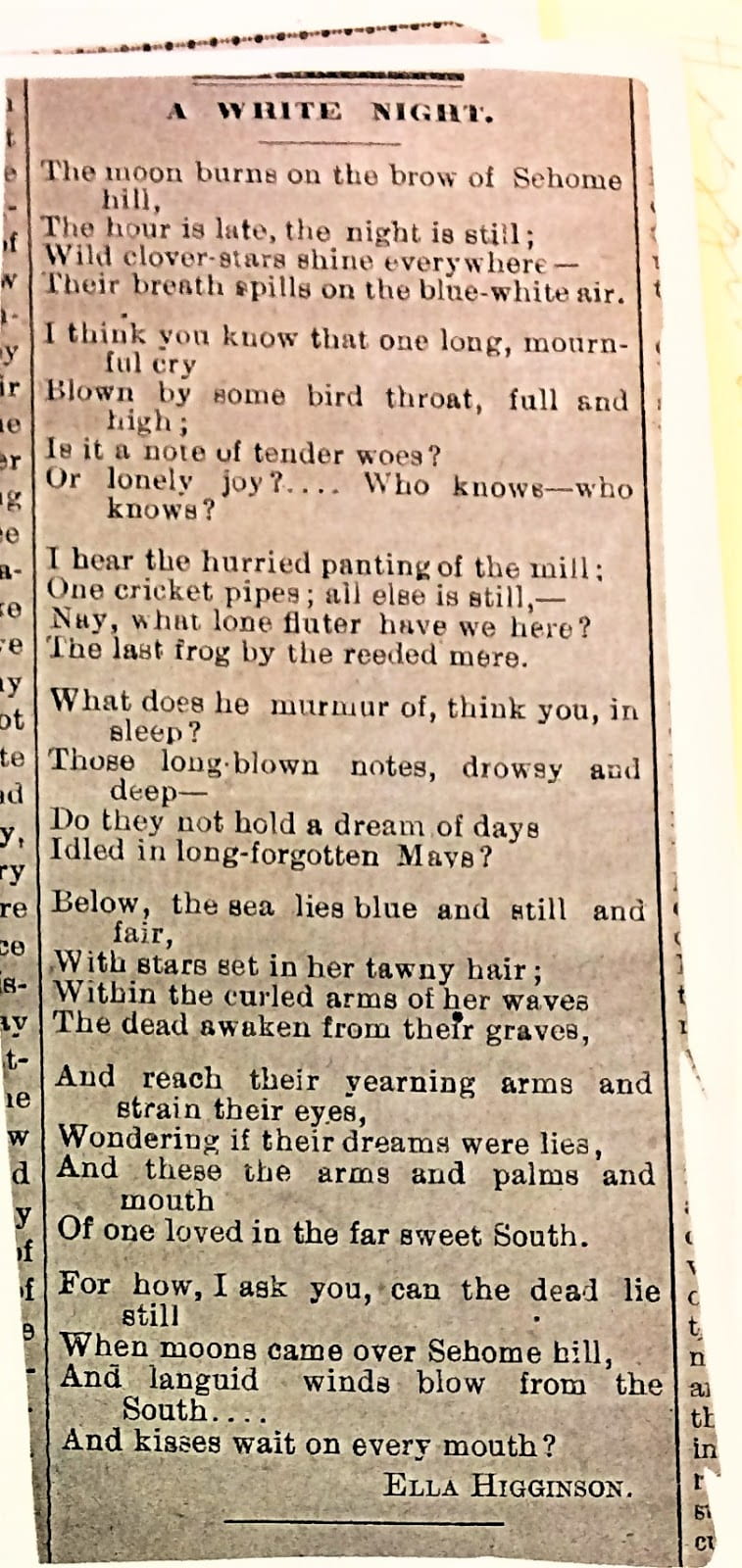The moon burns on the brow of Sehome hill,
The hour is late, the night is still;
Wild clover-stars shine everywhere—
Their breath spills on the blue-white air.
I think you know that one long, mournful cry
Blown by some bird throat, full and high;
Is it a note of tender woes?
Or lonely joy? . . . . Who knows—who knows?
I hear the hurried panting of the mill;
One cricket pipes; all else is still,—
Nay, what lone fluter have we here?
The last frog by the reeded mere.
What does he murmur of, think you, in sleep?
Those long blown notes, drowsy and deep—
Do they not hold a dream of days
Idled in long-forgotten Mays?
Below, the sea lies blue and still and fair,
With stars set in her tawny hair;
Within the curled arms of her waves
The dead awaken from their graves,
And reach their yearning arms and strain their eyes,
Wondering if their dreams were lies,
And these the arms and palms and mouth
Of one loved in the far sweet South.
For how, I ask you, can the dead lie still
When moons came over Sehome hill,
And languid winds blow from the South . . . .
And kisses wait on every mouth?
“A White Night” printed in an unidentified publication. Clipping courtesy of the Ella Higginson Papers, Center for Pacific Northwest Studies, Heritage Resources, Western Washington University, Bellingham Washington.
